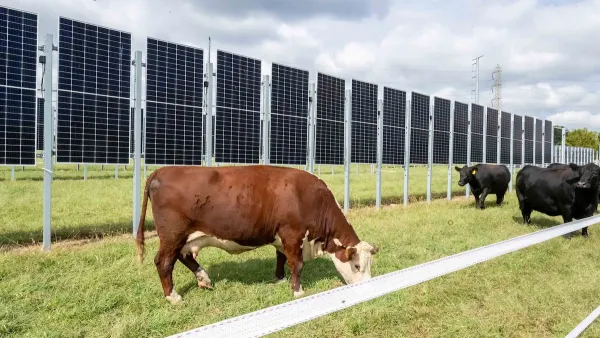The Economist argues that heavy reliance on solar power as an alternative energy source will not help Britain meet its greenhouse-gas reduction targets in 2050 due to operational and financial infeasibilities.
On the former point, Britain is a nation that experiences inclement weather year round, which prevents British households from getting adequate sunlight, except during ephemeral summer months.
"[S]olar energy can never play a central role in such a grey country. In Britain, consumption is lowest when the sun shines. And since the technology does not yet exist to store the electricity generated, conventional power plants are still needed during high demand. [B]y 2020 all small-scale generation will only amount to less than 2% of current electricity output."
According to the article, an argument against solar power in the UK can also be made strictly from a policy standpoint.
That the investment of $20,000 per household takes as long as 25 years to generate a 10% return makes solar subsidies "regressive" because "poor people spend a larger share of their income on fuel than the rich. The perks, meanwhile, go to those with panels-often wealthier homeowners." To that end, policymakers should curtail subsidies for solar panels and siphon that money to other renewable energy outlets that produce better results.
With 1990 as the baseline year, Britain sets its GHG reduction target at 80% by 2050.
FULL STORY: Why Britain should never count on sunshine for its power

Analysis: Cybertruck Fatality Rate Far Exceeds That of Ford Pinto
The Tesla Cybertruck was recalled seven times last year.

National Parks Layoffs Will Cause Communities to Lose Billions
Thousands of essential park workers were laid off this week, just before the busy spring break season.

Retro-silient?: America’s First “Eco-burb,” The Woodlands Turns 50
A master-planned community north of Houston offers lessons on green infrastructure and resilient design, but falls short of its founder’s lofty affordability and walkability goals.

Test News Post 1
This is a summary

Analysis: Cybertruck Fatality Rate Far Exceeds That of Ford Pinto
The Tesla Cybertruck was recalled seven times last year.

Test News Headline 46
Test for the image on the front page.
Urban Design for Planners 1: Software Tools
This six-course series explores essential urban design concepts using open source software and equips planners with the tools they need to participate fully in the urban design process.
Planning for Universal Design
Learn the tools for implementing Universal Design in planning regulations.
EMC Planning Group, Inc.
Planetizen
Planetizen
Mpact (formerly Rail~Volution)
Great Falls Development Authority, Inc.
HUDs Office of Policy Development and Research
NYU Wagner Graduate School of Public Service




























